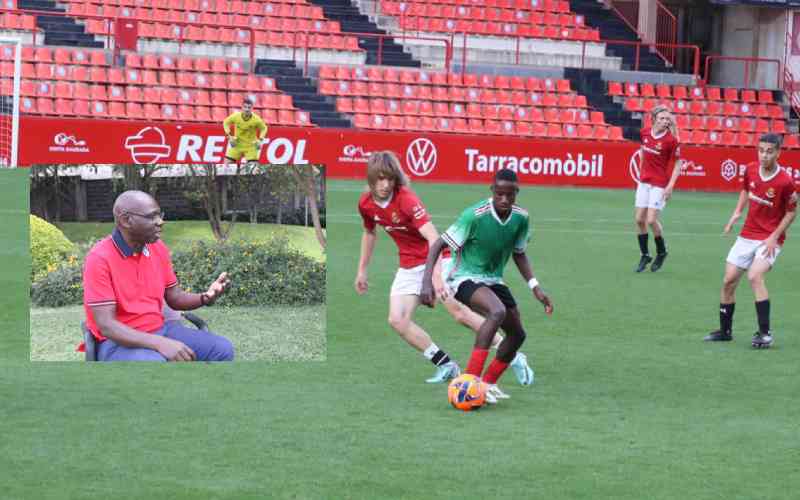By John Nandwa
Nairobi,Kenya; Before his contract was terminated, former AFC Leopards’ Dutch coach Jan Koops was often heard grumbling that the club’s hierarchy was meddling in the affairs of the team.
But if Koop’s sentiments had any grain of truth in it, then it’s fair to note that Ingwe are far from the only club in the world whose top brass demand to have a say in a team’s selection.
Indeed, some owners even take to touring training sessions before weekend matches and use such occasions to drop hints on their preferred line-ups.
It is plausible that under pressure from the boardroom, managers pick certain players regardless of whether their present form merits their selection or not.
Interestingly, it appears that not everyone is against this trend. AC Milan manager, Massimiliano Allegri, recently said that he welcomes suggestions on team selections and tactics from club President Silvio Berlusconi.
But what technical input, the 76-year-old media tycoon and former Prime Minister could give a qualified coach to improve a team’s performance on the pitch is anyone’s guess.
Berlusconi, however, is not the only owner who prefers a hands-on approach on the affairs of his team. English premier league side, Chelsea which is owned by Russian Oligarch, Roman Abramovich, is one such example.
The team’s managers from Italian Carlo Ancelloti to Roberto de Matteo have all paid with their jobs for failing to heed the owner’s wish to pick his favoured player, widely rumoured to be striker Fernando Torres. Torres was bought from Liverpool at the owner’s whims.
But such has been Abramovich’s desire to see his vanity purchase succeed, that the present coach Rafa Benitez was hired solely on his ability to get the best out of the player.
All this happenings lift a lid on an issue that football needs to look at anew. The question is; are owners entitled to make suggestions on which players ought to be on the team sheet?
It is easy to see why a club’s chairman would want to get involved. In most cases, these owners have invested in so much of their personal wealth that they want more of a say in how the club is run, who plays in the team and which players are recruited.
More often than not, these are men who are used to running empires and having people who do what they are told.
In addition, they are often very successful businessmen and they see football as a results business.
But top level football management cannot possibly be easy. Indeed, football managers at the highest level reach their lofty positions after years of high- profile achievements, an experience that leaves them eminently qualified for coaching.
The point therefore is that a manager should be judged primarily on his ability to set up a decent team, improve players and win matches without the owner being constantly on his ear over whom to select.
When this happens, the manager is shown to be weak, his authority disappears, the squad loses motivation and the manager will nearly always end up losing his job. You can get a lot of resentment building and factions can develop within the team. This has happened in many football clubs.
While it is accepted that a substantial investment buys an owner a say in the running of a football team, the fact remains that when club chairmen are left to pick a team, their choice may not always be the hardest working player - sometimes it is the laziest!
 The Standard Group Plc is a multi-media organization with investments in media
platforms spanning newspaper print operations, television, radio broadcasting,
digital and online services. The Standard Group is recognized as a leading
multi-media house in Kenya with a key influence in matters of national and
international interest.
The Standard Group Plc is a multi-media organization with investments in media
platforms spanning newspaper print operations, television, radio broadcasting,
digital and online services. The Standard Group is recognized as a leading
multi-media house in Kenya with a key influence in matters of national and
international interest.
 The Standard Group Plc is a multi-media organization with investments in media
platforms spanning newspaper print operations, television, radio broadcasting,
digital and online services. The Standard Group is recognized as a leading
multi-media house in Kenya with a key influence in matters of national and
international interest.
The Standard Group Plc is a multi-media organization with investments in media
platforms spanning newspaper print operations, television, radio broadcasting,
digital and online services. The Standard Group is recognized as a leading
multi-media house in Kenya with a key influence in matters of national and
international interest.






